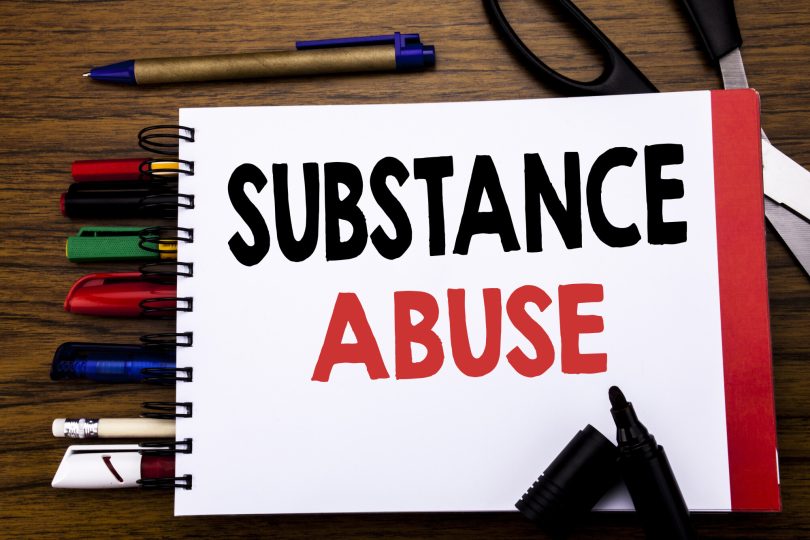Did you know over 104 million Americans passed away from a drug overdose during a 12-month period that ended in September 2021?
Alcohol and drug abuse continues to rise, but thankfully, there are substance abuse services. However, addiction treatment is often confusing and overwhelming at first.
In this guide, you’ll learn about why people seek treatment for addiction from a reputable center. Getting treatment for a substance abuse disorder will help you in your journey to recovery.
Ready to learn more? Keep reading.
1. You Can Interrupt and Break the Cycle
People suffering from an addiction often need to go to a drug-free environment. In this environment, supportive people will be around them to help them with their goal of getting off drugs.
Drug rehab usually begins with detoxification. This will help someone start ridding their body of the drugs. You also receive treatment for harmful withdrawal symptoms.
Some people might not need to go through detox, but detox alone won’t complete the treatment and end the cycle. After detox, the individual will begin the recovery process.
2. Education About Addiction
After you have detoxed at a center, you’ll feel more clear-headed and prepared to begin the education process.
Learning about addiction’s effects on physical and mental health will provide helpful insight. You’ll learn about what habits, people, or events trigger cravings.
Most rehab facilities will help their patients identify potential triggers. Learning about triggers will provide insight into what you should avoid post-treatment.
3. Dealing With Underlying Problems
When attending rehab, you’ll get a chance to understand what draws you toward a substance.
Did you begin using a substance to deal with stressful situations at home? Some people notice when they drink alcohol or use a substance, it numbs out emotional pain.
People might drink in social situations because they feel more comfortable. Understanding why you began using will help you dig below the underlying issue.
You can build new coping skills that don’t rely on substances.
4. Build New Practices and Habits
Most people don’t know how to set achievable goals. People with a history of drug abuse might not have great self-care habits or discipline. Self-care includes setting and completing goals.
You might have a goal and sincerely believe in it. But you might not approach the goal-setting process with the appropriate mindset. Wanting to change but falling short could weaken your resolve.
The majority of people have a hard time setting goals. A few changes to your schedule won’t eliminate your need to use substances.
Addiction has a compulsive nature and can grip people. Rehab will help you spend time developing short and long-term goals.
You can make goals for your physical, mental, and emotional health. Try to work out again, and take care of your physical health by consuming nutritious foods.
Improve your mental health by developing new coping mechanisms. Some people find journaling quite therapeutic, while others prefer to go for a walk or talk with a friend.
While in recovery, you will have the time to explore different self-care practices. You might learn a new technique from another patient attending the program.
5. Learn How to Set Healthy Boundaries
Did you know substance abusers don’t always take responsibility for their behaviors? Family or friends want to help but end up enabling unhealthy behaviors.
Unfortunately, the relational boundary can become distorted in families due to addictive patterns.
What occurs is poorly defined boundaries and a survival mentality. Family members will take on roles to help deal with stress. The role might ease some stress.
The positive thing about heading into treatment is that you’ll get to refresh boundaries. Learn how to develop healthy boundaries.
6. Your Treatment Might Get Covered
Before heading to a treatment center, determine if your insurance provider will cover the treatment. Depending on your situation, you could get treatment at a facility for a reduced rate.
Find out if your insurance provider will help out with treatment costs.
7. Overcome a Complex Disease
Drug use involves forming habits and results in addiction. Drug addiction is a complex disease, which makes it challenging to overcome it alone.
Prescription opioids or heroin can cause euphoria. Euphoria’s a sensation of feeling high along with a false sense of well-being. This can affect the dopamine system in an adverse manner.
The chemicals in drugs cause your brain’s reward system to stay on, making you feel you need the medication to feel normal.
The longer you use it, the more you need it to feel your baseline. But your dopamine system will never feel satisfied as your tolerance grows.
Even when you feel ready, maintaining sobriety will take more than good intentions or a strong will. A comprehensive treatment at a facility will help you.
8. Receive Treatment for a Co-Occurring Disorder
You can receive psychological, physical, and mental evaluations at a treatment facility. The review will help see whether you have a co-occurring disorder or not.
In treatment, you will receive medical help for your other disorder. Talk to the providers and find out what kind of patients they treat.
Substance Abuse Services
We hope this guide was helpful on why you should pursue substance abuse services. Going to a center will educate you about addiction, triggers, and coping skills.
Learn how to develop healthy relationship boundaries and set realistic goals.
Would you like to talk to a rehab professional today? Contact us today. We would love to chat with you.

















